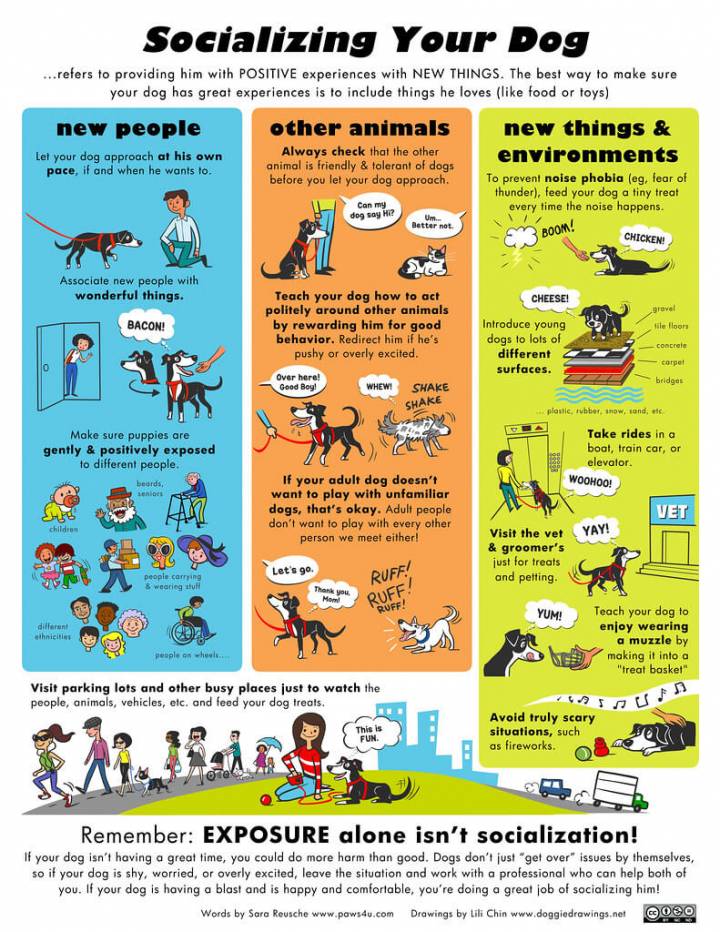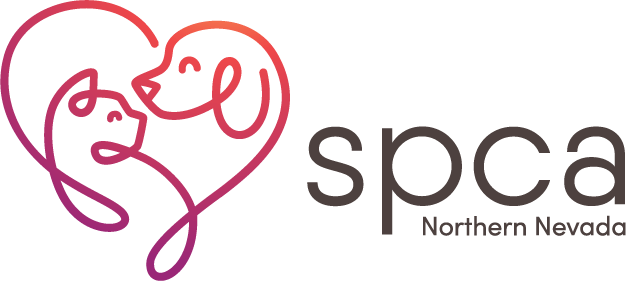Teach your pup to be comfortable with the world
Socializing your puppy is the best way to ensure he becomes a wonderful dog. Many dogs have behavioral issues in adulthood, solely because they were not socialized. Properly introducing your new puppy to their environment is fun, easy and will help you bond with him. Remember to always make every experience positive by taking it slow and rewarding your puppy with yummy treats!
Why is socializing important?
- Dogs have a natural socialization period from the ages of 3 to 12 weeks. During this time, they are biologically primed to pick up new smells, places, sounds, environment, and objects and learn that new things are safe and fun!
- Dogs do not generalize well, so they begin to avoid stimuli they are not socialized to when they are young. They will then use their fight or flight response when faced with unfamiliar stimuli.
How to Socialize Your Puppy
- Take it slow. Make sure you move at the pace of your puppy. Do not throw your puppy into new situations without positive reinforcement. Positively reinforcing your puppy will help him associate yummy treats with new things.
- Do not overdo it. It is important to allow your puppy to mentally process new things. After a trip to see a brand new thing, make sure he gets lots of rest and time to cope with his new discoveries.
- Implement training. Whether it be at home or with a professional, basic obedience is a great step to take when having a new puppy. Training basic obedience helps him understand exactly what you are asking and helps you understand his level of focus. Training also creates a greater bond with you and your puppy. Starting training early on can help your puppy become a well-mannered adult dog.
- Do not physically punish your puppy. It is a common misconception that you need to physically punish your animals when they are doing something bad. But animals do not understand physical punishment. If you physically punish your puppy, not only will he become afraid of you, but he will also associate you with bad things happening to him. This can lead to aggression.

What should you socialize your dog to?
- New people of all ages, genders, disabilities (wheelchairs and canes), and height. People wearing different items such as hats, hoodies and sunglasses. Individuals with a heavier step or a unique gait.
- Unique places, such as stores where dogs are allowed like Home Depot and Lowes. Heavy foot traffic areas, like sporting events or festivals.
- Elements in the home like different floor textures and loud machines, like a vacuum or washing machine. Acclimate them to the loud noises of the television and fast moving pictures.
- Physical touch from a stranger. This can be quite scary for a puppy, as some people want to squish his face and give him a hug. Remember to make every interaction with a stranger positive with tasty treats.
- Alone time; it is vital for him to adjust to being alone so in the future he does not form separation anxiety. Make sure that he has an activity like a kong or puzzle feeder to stimulate his brain so he does get into trouble.
- Grooming, like brushing, bathing and teeth cleaning. Grooming will keep your dog happy and healthy, and teeth cleaning will prevent dental disease later on. Many adult dogs that are uncomfortable with brushing or baths were not groomed consistently as puppies. Get your puppy comfortable with the experience by brushing him and cleaning his teeth daily, and bathing him monthly. Be sure to build positive association with yummy treats!
- Adult dogs that are well-socialized and easy going. Ensure the meeting is controlled and allow the adult dog to correct the puppy as needed. Dogs learn social skills from other dogs, as well as how to read dog body language. Dogs that do not learn “dog language” become anti-social and are at risk of developing dog to dog aggression.
- Other animals such as cats and domesticated livestock (do not introduce your puppy to a wild horse). Puppies should learn that not all small animals are for chasing and not all big animals are for climbing.
- Exposing puppies to all these things early on will help them learn to cope better with their environment later in life.
Remember it is okay to ask for help from any professional or local trainer when it comes to socializing a puppy. Kelley Bollen Consulting, LLC can be a great resource for you and your pet.
Need a printable version of this page to hang on your fridge? Click on the button below!

